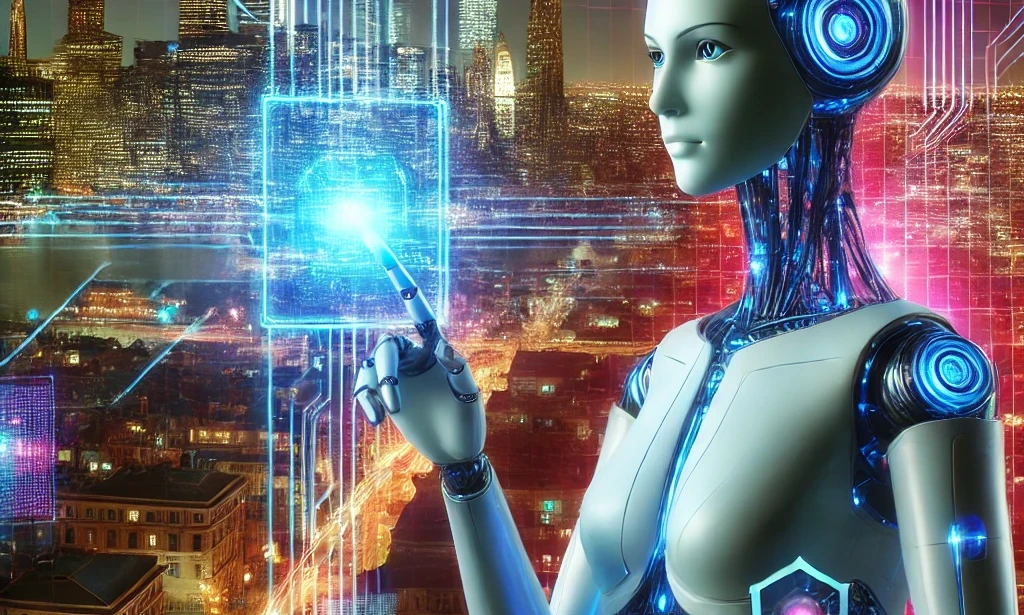Artificial Intelligence (AI) has become a cornerstone of technological innovation, evolving from speculative science fiction into a practical tool for solving complex problems. It is reshaping industries, advancing science, and improving our daily lives. As AI continues to integrate into every facet of society, its transformative potential offers endless possibilities.
What is Artificial Intelligence?
AI is the branch of computer science that creates systems capable of performing tasks requiring human intelligence. These tasks include learning, reasoning, problem-solving, and understanding natural language. AI systems are classified into two categories:
- Narrow AI: Specializes in specific tasks like facial recognition or language translation.
- General AI: An advanced form of AI that can perform any intellectual task a human can do (still under development).
How AI is Revolutionizing Key Sectors
-
Healthcare
AI’s role in healthcare is monumental. Tools powered by AI analyze large datasets to identify patterns, enabling faster and more accurate diagnoses. For example, AI can detect anomalies in medical imaging or assist in developing personalized treatment plans. It also accelerates drug discovery processes, saving time and lives. -
Business
AI improves decision-making and operational efficiency. Predictive analytics allow businesses to forecast trends, while AI-powered chatbots handle customer queries 24/7. Additionally, AI enhances supply chain management by optimizing inventory and reducing waste. -
Education
AI personalizes education by tailoring content to individual learning needs. Virtual tutors and AI-assisted grading free up time for educators to focus on creative and interactive teaching. It also improves accessibility by providing tools for differently-abled students. -
Environmental Conservation
AI supports environmental sustainability by monitoring climate change, predicting natural disasters, and optimizing energy consumption. It aids in preserving ecosystems through predictive analytics and automated interventions.
Ethical and Societal Challenges
While AI brings immense benefits, it also poses challenges:
- Privacy Concerns: AI relies on large datasets, often raising issues about user data privacy and security.
- Algorithmic Bias: AI systems may unintentionally reflect human biases present in the data they are trained on.
- Job Displacement: Automation may replace certain jobs, requiring workers to adapt to new roles and industries.
These concerns highlight the importance of developing fair, transparent, and accountable AI systems.
The Future of Artificial Intelligence
AI’s future promises groundbreaking developments:
- Quantum Computing: Faster, more powerful computing capabilities will revolutionize problem-solving.
- Robotics: Smarter robots capable of complex tasks will redefine industries like manufacturing and healthcare.
- Natural Language Processing: Improved AI systems will facilitate seamless communication between humans and machines.
Collaboration between governments, researchers, and industries will ensure that AI develops responsibly, prioritizing societal benefit over profit.
Conclusion
Artificial Intelligence is more than a technological advancement; it’s a tool for enhancing human potential. Its applications in healthcare, business, education, and beyond are already changing lives for the better. As we look toward the future, fostering ethical AI practices will be crucial to ensure its equitable and inclusive impact worldwide.
AI is no longer just a concept of the future—it is the driving force of today, transforming possibilities into reality.

You must be logged in to post a comment.